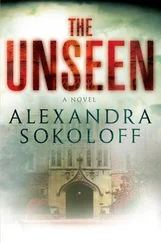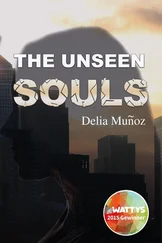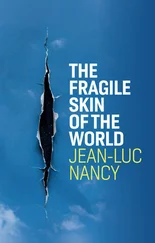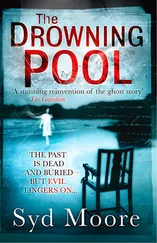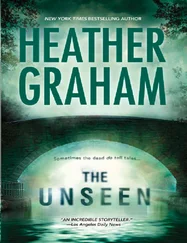The rest of David’s bedroom yielded nothing but more clothes, which was not a surprise: she had gone through it fairly thoroughly when packing him for St. Andrew’s. Still, the sight of some of his old and favored shirts made her falter for a moment.
She sidled, next, into his office, which felt like the most illicit place to go. She had never been specifically forbidden from entering it — certainly she had spent a great deal of time inside it, whenever David asked her in — but her many years of hovering at its threshold without an invitation to come inside had served to make it feel off-limits. She rarely went into it alone.
It was a small office, a former pantry, stuffy in the summertime even with the window open. There were built-in bookshelves on either side of the room, nice-looking dark-wood bookshelves; but years of stacking books first vertically and then horizontally had rendered them unusable as a library. Only some of the spines were visible. There were a few odd pieces of art on the wall: two small framed prints of Leonardo da Vinci drawings (Ada had the feeling David had acquired them from a yard sale, or something equally eccentric); a little landscape that included a country lane.
The computer itself was clear of any debris, and everything that was out on the desk was stacked precisely, at right angles. David was neither neat nor messy; he disliked clutter, and had a mortal fear of the sort of knickknacks that Liston collected and kept on her desk and in her home. He did not like framed photographs. He did not like unnecessary objects. But his places of work were overrun with stacks: piles of papers and books and letters and bills, many of which were obsolete or had already been attended to.
Ada had never fixed, or hired someone else to fix, the computer in David’s office, which he’d crashed while working at it in the months following his retirement. When she turned it on, it still displayed the sad Mac face that David had chuckled at, its X ’d-out eyes cartoonish and silly. Its hard drive disk was still stuck inside it. Whatever information it contained — some of it, perhaps, revealing — would be contained until the next time it was successfully started.
She turned in a full circle, took in a deep breath. She did not know where to start. The cream-colored filing cabinet caught her eye. Though she had never seen David use it, she put her hand out and tried the top drawer. It caught hard against her grip: locked. A tiny lock sat next to it tauntingly: no key in sight.
She went down into the basement and approached David’s workbench. Above it, in a somber row, hung the strange and helmetlike objects he had been working on for years. Some resembled goggles; some resembled masks. They looked at her jarringly now. She did not like to see them. She grabbed a crowbar that hung below them on a peg, which she had seen David use only once before. He had levered open the door to the small shed in their backyard when he had lost the key to a padlock.
Now, returning upstairs, she tucked its hooked head up beneath the highest drawer in the filing cabinet and angled down as hard as she could. She used all of her insubstantial weight to push against the lock. But the only result was the bending of the metal — a bucktoothed look to the top drawer, a slight indentation in the one below it. Breathing heavily, her hands sore, she finally gave up, and dropped the crowbar on the floor.
At last Ada turned to the nearest stack of paper on David’s desk. She lifted one leaf from the top. It was a letter from a collection agency, demanding that the electricity bill be paid. Below it was a photocopy of a journal article on language acquisition in children. Below that, an invoice for work that had been done on the roof of the house perhaps two years ago.
Quickly, she worked her way down the pile, until she reached a layer (she had begun to think of the pile as an accumulation of strata, and herself as a geologist) that consisted of perhaps two dozen tickets and receipts. She picked each one up and examined it. Mainly they were meaningless, evidence of items purchased at the local pharmacy or grocery store, one the stub of a ticket to a movie that they had seen together, perhaps a year ago. But one item caught her eye: it was the stub of a train ticket dated August 11, 1984, from Boston to Washington, D.C. On the back of it was scribbled one name, George , and an address.
She lifted the ticket up, pondered it for a moment. When had David last been to Washington? The two of them had gone together several times when Ada had been younger; but never this recently. George was his friend from childhood, an artist, who now lived there; she had met him perhaps twice that she could recall.
Suddenly she realized the significance of the date: it was the day David had first gone missing. The first time she had spent the night at Liston’s. She recalled it exactly: recalled the police report that served as evidence of the necessity of intervention by the DCF. The way that David had studied it sadly.
He had told her, and Liston, and the police, that he’d gone to New York.
Had the disease already overtaken his brain by then? Could it have been a mistake? Or had he been lying intentionally, covering something up?
Slowly, she put the ticket down again, on the top of the pile, and then changed her mind: she tucked it into her pocket. Next, she picked up the For Ada disk that thus far she had been leaving at David’s house. Better to keep them both out of the hands of others, she thought.
She carried these two items with her for the rest of the day, searching for a place she might keep them safe. She found a giant, ancient dictionary, four hundred pages in length, in Liston’s basement. It looked unused and unsuspicious. Into its pages she inserted the For Ada disk and the train ticket, and then she closed it with a satisfying clap. After some further exploration, she decided she would put it on the top shelf of the closet in her bedroom at Liston’s house, so high that she could not see it without craning her neck. She had to climb onto a chair to reach it. She would keep the documents together there, tucked safely inside the dictionary — along with any other evidence she could find.
One thing David had done, according to Liston, was create a will; but with parts of his identity in question, and with Ada’s maternity in question, it was not a valid legal document, according to the lawyer Liston had spoken with. Already there were problems with St. Andrew’s, with the payments that settled his bill each month. Upon his death, the distribution of his worldly goods would come into serious question. Though Liston had tried to be subtle in her investigation, careful not to spread rumors at the Bit without due cause, in the days following her talk with Ada she called every member of the lab, one after another, to ask them what they knew. And everyone professed to know nothing.
“Oh my God,” Hayato said, softly, on the phone — Ada was eavesdropping, of course—“was he pathological? I don’t understand.” And it was all Ada could do to prevent herself from crying out at him and Liston both in rage.
In the evening, after work, Ron Loughner sometimes came over and met with Liston, and Liston carefully invited Ada to join them. She accepted, but only, she told herself, to keep track of what was being said about David. The first time, Loughner asked her to draw her family tree as well as she could, naming those relatives whose names she could remember. She told him what she could about what David had told her, recalling the conversations she had had with him prior to his move to St. Andrew’s — the old Finnish ancestors, the governor of Massachusetts, the Amory family. She told him that David’s mother and father were Isabelle and John Fairfax Sibelius, and that his father went by Fairfax as his first name. She told him that David had had no siblings and no cousins his own age. She told Loughner what David had told her: that both of his parents were dead, and that a family called Ellis had purchased their home. She told him, roughly, where their home had been.
Читать дальше


